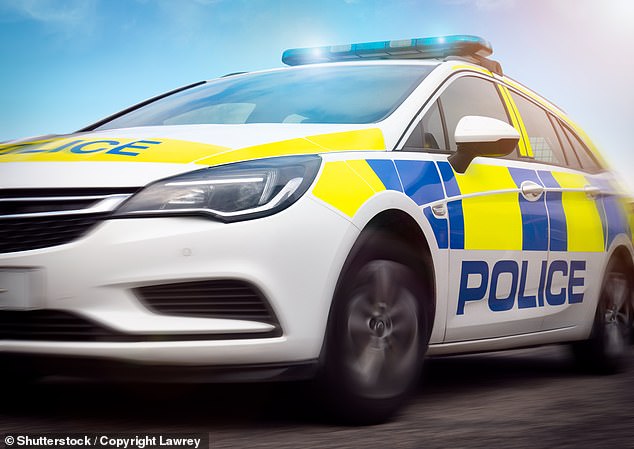Home Secretary Yvette Cooper is being urged to recruit 1,000 new traffic police officers if she and Labour are serious about improving road safety, tackling the car theft epidemic and combating crime in general, the AA says.
The automotive group Analysis of official police workforce statistics shows there were 4,215 traffic officers in England and Wales at the end of March 2024.
This is 1,022 fewer than the peak on March 31, 2016 (5,237), representing a 20 percent decline in less than a decade.
He said there is a widespread public perception that drivers “just get away with” a range of different traffic offences, and that only more officers could reduce this.
The AA has called on Home Secretary Yvette Cooper to recruit 1,000 new traffic police officers
Citing an over-reliance on cameras to monitor and enforce British drivers, he said a greater police presence should be introduced to support new technology coming to the roads.
As part of Labour’s general election manifesto, the party promised to recruit thousands of new police officers to tackle neighbourhood crime.
The AA has today called on Home Secretary Yvette Cooper to deliver on this promise and said at least 1,000 of the increased police force should be dedicated traffic officers to tackle the rising tide of vehicle and car crime.
The motoring organisation says its own research has found the public is growing tired of people “just getting away with it” when it comes to traffic offences in particular.

The AA says there is a widespread public perception that drivers “just get away with it” with a range of different traffic offences, and only more officers on the road could reduce this.
In a survey of 11,469 drivers last month, more than half (57 percent) felt drivers could easily avoid being pulled over for careless driving because of the lack of police on the roads.
Similarly, more than two-fifths of drivers said offences such as using a mobile phone while driving, drug-driving, not wearing a seatbelt and using a dangerous vehicle went unpunished due to reduced police presence.
The call for a large police presence comes in the wake of the wider use of AI-powered cameras to detect a range of different traffic offences, including catching people using phones while in control of a vehicle and not wearing a seatbelt.
Authorities are also installing the latest “ultra” speed cameras, which can not only identify speeding drivers in both directions, but also do not blink when they catch passing motorists and can detect other offences including phone use and not wearing a seatbelt.
The AA welcomed the introduction of the technology but said it should be complemented by a greater police presence on the roads.
Interestingly, there was a strong belief that more traffic officers could help combat and reduce crime beyond the road.
Nine in 10 (91 percent) said having more traffic police would make communities safer, while eight in 10 believed an increase in highway patrol officers could help reduce crimes such as drug dealing, human trafficking and the current wave of vehicle thefts, especially given the recent rise in crimes involving unlocked cars.

At the end of March 2024, there were 4,215 traffic officers in England and Wales, some 1,022 fewer than the peak on 31 March 2016 (5,237), representing a 20% decrease in less than a decade.
Jack Cousens, head of road policy at the AA, said: ‘Whether it’s traffic offences or general crime, public opinion suggests that too many people are simply getting away with it.
‘It is clear that the public wants to see more police officers on their streets, so the government’s ambition to increase police numbers is welcome.
We believe there should be a broader approach to tackling crime and that more police in cars could produce safer communities as well as safer roads.
‘A clear and visible presence is in itself a deterrent, ensuring better driving standards, as well as sending out a warning signal to offenders that the chances of being caught are greater than before.’
Mr Cousens added that a recruitment drive for traffic officers would help combat certain crimes that can only be identified by humans, such as the discovery of stolen goods, through routine stops.
“Similarly, a camera can detect a speeding driver, but it cannot stop him if he is under the influence of alcohol or drugs,” he said.
“Investing in traffic officers not only improves road safety, but also produces safer neighbourhoods.”
The Home Office has been contacted for comment.
Some links in this article may be affiliate links. If you click on them we may earn a small commission. This helps us fund This Is Money and keep it free to use. We do not write articles to promote products. We do not allow any commercial relationships to affect our editorial independence.


